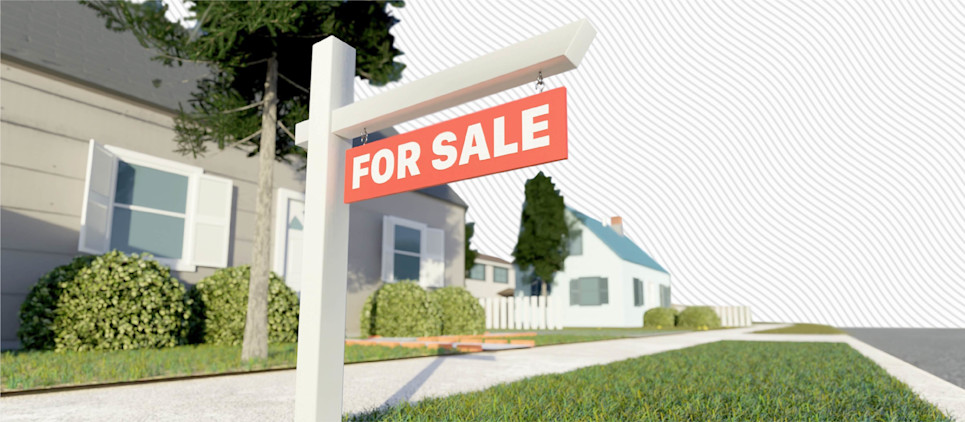What is a buyer’s market?
Buying or selling a home can be a stressful process. In fact, when you take into account ever-changing real estate market conditions, it can feel like a full-time job. But taking the time to understand the housing market is important for buyers and sellers alike. The dual concepts of a buyer’s market and a seller’s market are a great place to start, as these speak to supply and demand.
While you might lean on the expertise of a real estate agent to guide you through the nittier and grittier aspects of buying or selling a home, these concepts are part of the crucial baseline knowledge that you need to develop before kick-starting your journey.

Table of contents
What is a buyer’s market? What causes a buyer’s market? 2 Tips for buyers in a buyer’s market3 Tips for sellers in a buyer’s marketWhat is a buyer’s market?
In real estate, a buyer’s market occurs when there are more houses on the market than there are interested home buyers. In other words, the supply of homes exceeds the demand.
A sudden, dramatic increase in homes for sale in a certain area or a decrease in interested buyers could create a buyer’s market. Both situations could also occur simultaneously.
Any of the following might signal a buyer’s market:
More for sale signs in the area
Homes sitting on the market longer
Overall drop in real estate prices
When buyers are in control, sellers will go the extra mile to ensure their properties attract buyers’ attention. Sellers might drop prices to gain advantage over comparable properties for sale in the area. They may also entice buyers with repairs or favorable terms.
Buyers, on the other hand, can use sellers’ eagerness as leverage to negotiate lower prices and special terms, such as having the current homeowner cover a portion of closing costs. Sellers may be forced to accept an offer below asking price if there’s a chance their interested buyer could withdraw the offer to pursue another option.
A buyer’s market is the inverse of a seller’s market, which occurs when there are more buyers than there are houses for sale. An extreme seller’s market—when demand is so high and supply is so low that buyers are faced with dramatically inflated real estate costs—can lead to what’s known as a housing bubble. When the bubble “bursts,” it leads to a housing sell off, and a buyer’s market ensues.
What causes a buyer’s market?
Many factors can contribute to a buyer’s market. These include:
Economic recessions, which can force people to sell their homes if they can no longer afford their mortgage payments, while also shrinking the buyer pool.
Decline in the local job market, which can cause people to sell their homes and move.
Overdevelopment of an area without enough buyers to support the supply.
Consider a historical example. In the mid-2000s, the U.S. experienced a major housing bubble—a perfect storm aided by government policies that encouraged homeownership and lenders who processed loans more liberally and with lower interest rates than was fiscally responsible. Feeling encouraged, many people moved their investments into real estate.
When that market was no longer sustainable, the housing bubble burst, and the financial crisis of 2007-2008 followed. Many homes went into foreclosure because of unsustainable mortgage rates; for others, prices dropped as the current owners scrambled to get their homes off of their hands. Supply drastically increased, but there were no longer buyers for all those properties—which created a buyer’s market. Buyers had an extensive selection of homes and plenty of leverage to negotiate terms and cost.

2 Tips for buyers in a buyer’s market
A buyer in a buyer’s market can feel like a kid in a candy store. But remember: the decision to buy a home is a big one, and it’s not something you should take lightly. If you’re ready to take the plunge, here’s how to use a buyer’s market to your advantage.
Take your time. There’s usually no rush for buyers in a buyer’s market. Taking your time can help ensure that you don’t make any rash decisions. If a property is overpriced for the current market conditions, it can be advantageous to wait before making an offer. The longer the home sits on the market, the more likely the seller may be to make a deal. If someone else comes in and makes a below-ask price, they’ve set the floor, and given you the opportunity to outbid them.
Shop around. Get to know the area and comparable properties. Not only will this allow you to make sure you find your ideal home, it’ll also educate you about prices in the area. This can help you in negotiations when you make an offer to buy a home. If a home is listed for $400,000 but a property with similar characteristics around the same area is listed for $300,000, you can bring this up in your negotiation.
3 Tips for sellers in a buyer’s market
When you put your home on the market in a buyer’s market, you are at a disadvantage. There are several things that you should keep in mind to ensure that you’re maximizing the chances that your home will sell.
Get the property in shape. You want your property to stand out in a crowded field. Make necessary repairs, clean thoroughly, and stage it well. You want to make it easy for potential buyers to see themselves living in the space.
Invest in marketing. Although it comes with a price tag, advertising is often necessary to get maximum visibility for your property.
Price it right. Buyers know they can get a deal in a buyer’s market. While you want to leave room for negotiation, a list price that’s too high may discourage buyers from even making an offer. Price your home to sell.
Bungalow is the best way to invest and manage your real estate portfolio. We work with you to identify, purchase, fill, and manage residential properties—so that you can enjoy up to 20% more in rental income with a lot less stress. Learn more about Bungalow.
Ready to find your next home?
Move-in ready homes and a built-in community so you can feel at home, together — wherever you are.
Suggested articles



